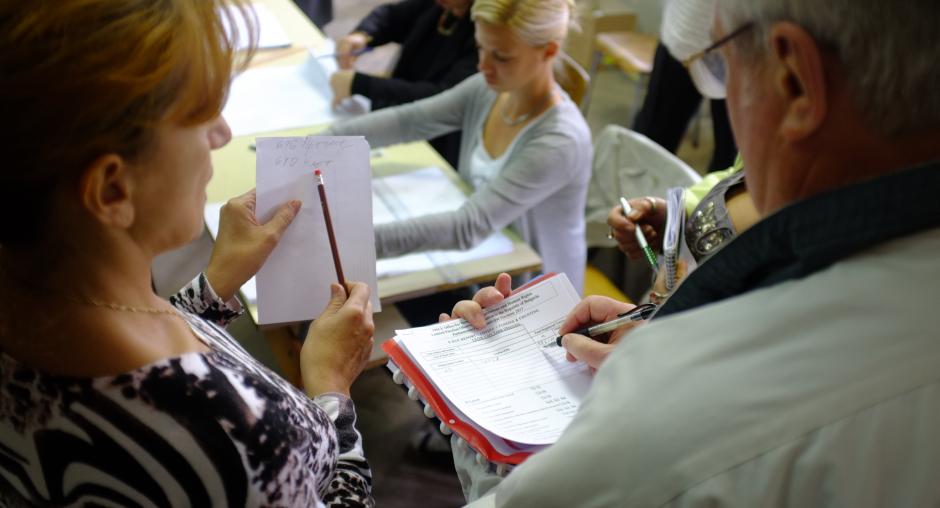Bulgaria’s run-off elections underscore need for improvements in electoral process, OSCE/ODIHR observers say

SOFIA, 31 October 2011 – The second round of Bulgaria’s presidential and municipal elections was generally characterized by respect for fundamental freedoms but also underscored the need for further improving the electoral process, the observer mission of the OSCE Office for Democratic Institutions and Human Rights (ODIHR) concluded in a statement issued today.
The ODIHR observers noted problems during the processing and tabulation of results after the first round, and the Central Election Commission’s inability to decide on critical issues in a timely and efficient manner. They also reiterated previously raised concerns about allegations of vote-buying and pressure on voters, and noted that the authorities launched 106 investigations into suspected vote-buying related to the first round.
“As before the first round, candidates were able to campaign freely and without undue restrictions. Public trust in democratic institutions is essential. It is therefore important to address shortcomings such as persistent allegations of vote buying. This should be properly investigated and long-standing recommendations should also be considered,” said Vadim Zhdanovich, the Head of the OSCE/ODIHR Limited Election Observation Mission.
The processing of first-round results was particularly problematic in Sofia, where some protocols were not delivered to the next-level election commission and bags containing sensitive election material were left unattended and were handled by unauthorized people. Some municipal election results were only published five days after election day.
The multitude of election-related responsibilities, combined with a lack of professional staff and resources, limited the Central Election Commission’s ability to process and decide on complaints and appeals. As a result, the Commission continued to pass decisions after the three-day legal deadline and in some cases failed to take a decision at all before the second round took place.
Election day was generally calm and voting appeared to proceed in an orderly manner in the polling stations visited by ODIHR observers. During the vote count, procedures were not always followed, resulting in protocol reconciliation problems.
